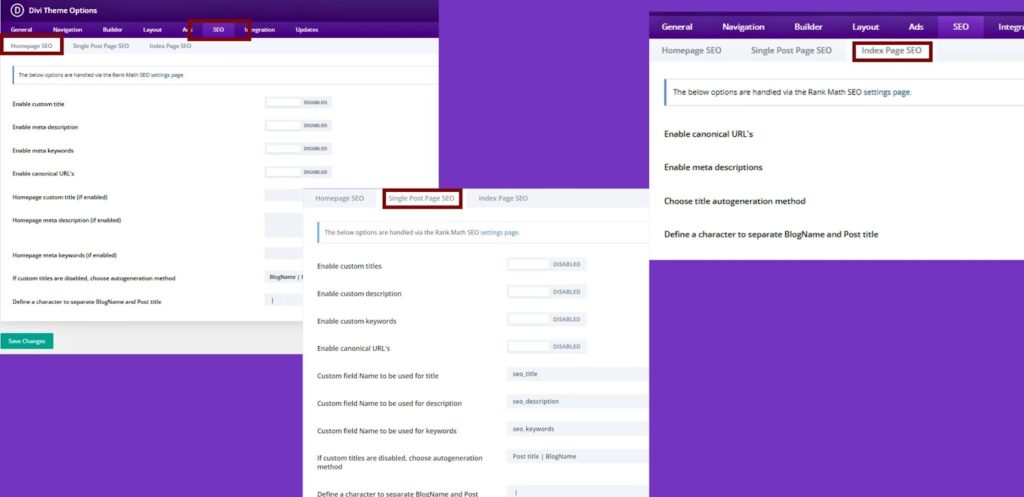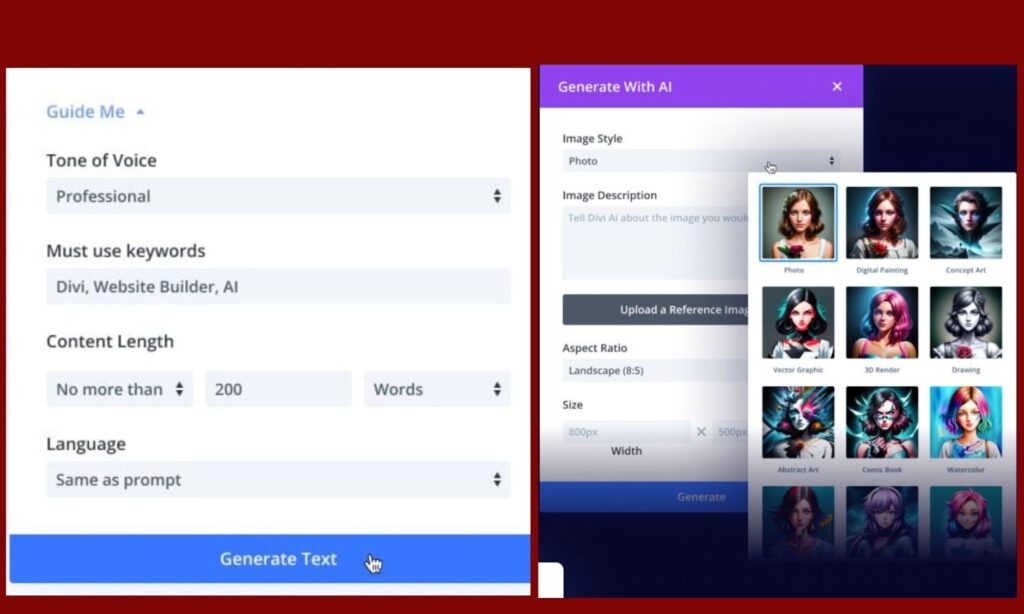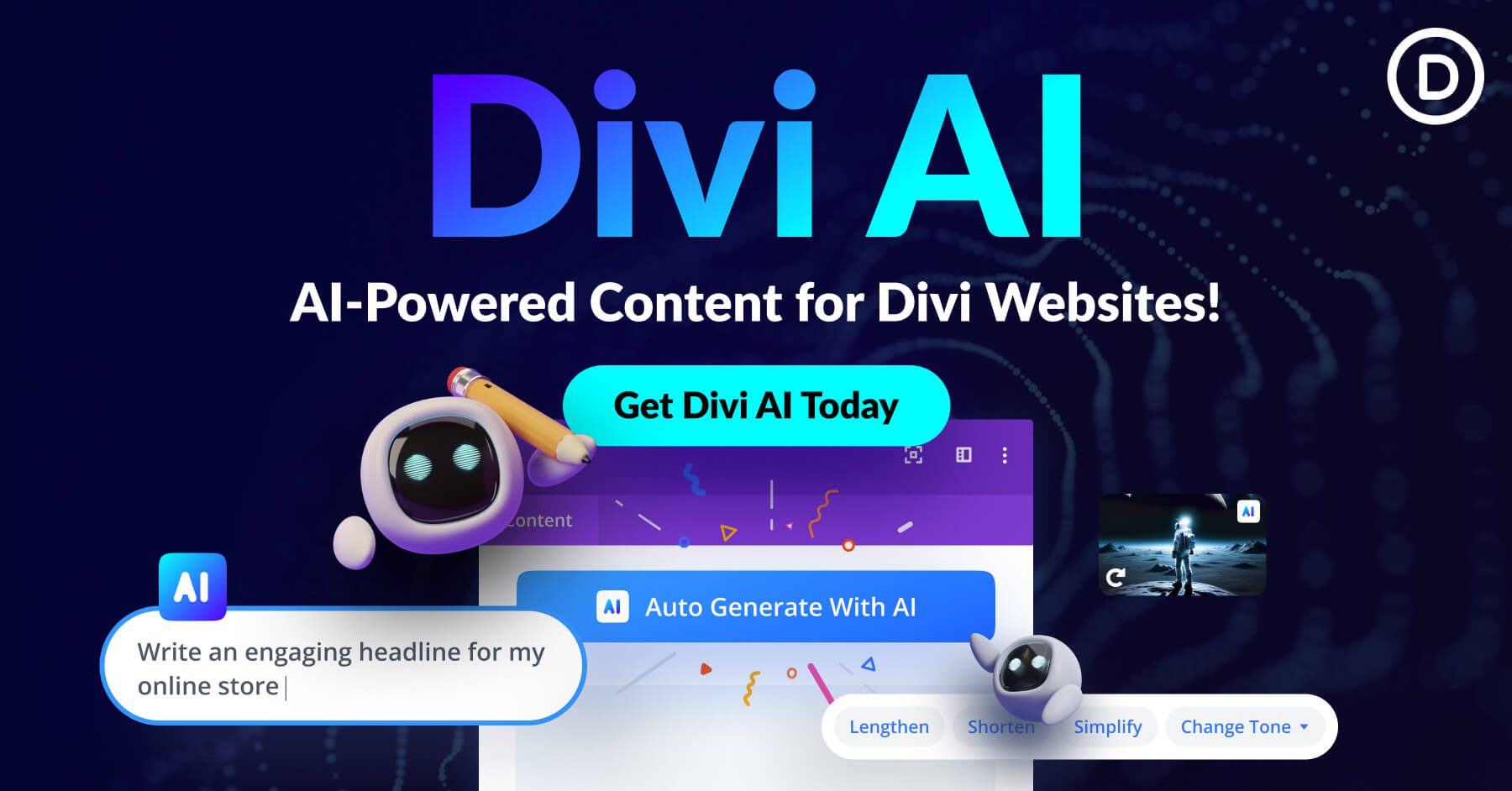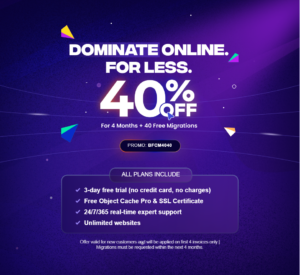The internet has become a go-to source for everything from celebrity trivia to repairing our roof ceilings. However, your SEO can influence the way your website ranks on Search Engine Result Pages (SERPs). A beautifully designed website with engaging content is of little value if it isn’t SEO-friendly.
Divi is the most popular product by Elegant Themes that offers a visual editing experience. It simplifies the web designing process by using a drag-and-drop functionality, eliminating the need for coding. However, with programming from scratch being a lot cleaner, Divi Builder may slow down the performance due to extra code like any other page builder. So, given the importance of SEO for website visibility, traffic, leads and conversion – the question arises: ‘Is Divi good for SEO?’
Let’s find out the answer!
How fast is the Divi Theme?
Divi understands the critical role SEO plays in the success of any website, alongside interactive website design. Therefore, Divi is a well-organized and developed theme for quick loading, making it a good choice for non-tech web designers and website creators.
Divi theme easily scores you amazing results on PageSpeed Insights with the right settings and regular maintenance. All you need is to follow some practices.
Divi’s built-in SEO settings
Divi has a dedicated section to make adjustments to the SEO in the Divi tab. Go to Divi > Theme Options and select the SEO tab. This tab offers settings for your homepage, single post pages, and index pages, allowing you to fine-tune how search engines see your homepage.
It also lets you use custom fields to specify the settings for blog posts and pages, and provides controls for the index page separately from other pages. Whether it’s the meta description, titles, or canonical URLs, you can manage all these SEO settings within Divi. Check out how to enable the SEO functionality.

Streamlining SEO with Divi’s Built-in Tools
However, you may encounter certain myths about the Divi Theme and its page builder, including slower loading times, shortcodes, and in general Divi being bad for SEO. Before believing these lies, let’s take a closer look at the common myths presented by website creators.
Is Divi Bad for SEO?
There’s a common myth around the Divi Builder claiming that Divi websites are heavy and take too long to load. Mainly this discussion centers around the use of shortcodes and the notion that excessive code bloats the website, reducing its speed.
Surely, this can impact the speed, one must ask: Is building a website from scratch truly worth the effort and time, especially when the solutions exist? I’ll share with you strategies that will help you make your website ultra-Seo-friendly using simple tips and tricks. But, let’s first discuss the myths and realities about Divi.
Myth 1: Shortcodes are Bad for SEO
Divi uses shortcodes to display a specific function or content, enhancing the user experience. They’re much easier to use than long code, allowing web creators to build interactive websites quickly, with less room for errors. While excessive use of shortcodes can lead to site bloating, it’s not true that shortcodes inherently slow down the website’s speed.
Furthermore, because shortcodes operate server-side, search engines only detect the content within the shortcode and not the shortcodes themselves. However, it’s common for search engines to struggle with finding the right meta-description. To overcome this, use an SEO plugin like RankMath which we’ll discuss in a while.
Myth 2: Divi websites are heavy and slow
Another common myth about Divi page builder is that it makes the website slower to load. This is totally false, as web designers are always advised to maintain a minimalist yet engaging website design. A complex website design with tons of design elements and shortcodes can bloat your website, forcing bots to comb through even more code than usual to pick out the meta titles and descriptions.
Where shortcodes themselves don’t impact the speed, poorly coded or inefficient shortcodes can indeed impact site performance. Therefore, it’s vital to select plugins that contribute to your website’s functionality.
Many creative agencies, such as Delish Agency, Kip, Morley Group, and others, utilize Divi. Divi doesn’t impact the SEO of your website negatively. Moreover, SEO isn’t solely dependent on the theme or page builder. There are several other factors involved in ranking your website on the SERPs, which we will delve into below.
Best SEO Practices for your website
One of the best ways to help search engines effectively crawl and rank your website is by keeping some basic SEO practices. Some common SEO practices for optimal ranking are:
- Ensuring your website is accessible and not blocked from crawling or indexing.
- Following the hierarchical heading structures including H1, H2, H3, H4 and H5.
- Using descriptive ALT tags for images.
- Avoiding keyword stuffing, cloaking, and using private link networks, known as black hat SEO practices.
- Including internal and external linking.
- Backlinking
- Crafting SEO-friendly URLs.
- The optimal use of plugins and avoiding overload.
- Using SEO and Cache Plugins
- Choosing a reliable web hosting provider.
- Creating user-focused quality content.
How to Improve Divi Site Speed for Elevated SEO Ranking?
If your Divi site is still slow, you can utilize a combination of free and paid plugins to take your website up a notch. Where plugins do impact the speed of your site, these essential plugins helps you optimize your website speed and improve your ranking on search engines.
Why do you need extra plugins to improve your Divi SEO workflow?
Sometimes it can be challenging for search engines to identify the appropriate meta descriptions and rank proper keywords, especially in case of shortcodes. However, by integrating an SEO plugin with Divi, this is no longer an issue. While Divi is inherently SEO-friendly, incorporating SEO plugins will allow you to dig deeper into the metadata of each page, post, category, image, and keyword, giving you precise control over its settings.
WordPress SEO Plugins
Free to use, WordPress SEO plugins create a sitemap structure, notify search engines when there’s an update, and simplify SEO optimizations through automatic settings. While you can use a wide range of free SEO plugins available, my personal favorites are Rank Math and Yoast SEO plugins. They offer advanced options such as image SEO, internal linking suggestions, advanced XML sitemaps functionality, managing SEO roles, and many more along with the basic functionality.
Additionally, you can also go for WP Rocket, a paid caching plugin. It’s reliable, hassle-free, one-click caching solution for your website.
Harnessing cache plugins for faster loading
One of the most effective ways of increasing your website speed is by using cache plugins. These plugins store copies of the most recent version of your website so that future requests can be served more quickly. This approach not only minimizes the load on your hosting server but also makes it easy for returning visitors to access your website content faster.
Image Optimization Plugins
Other effective ways of achieving a near-perfect page score include image optimization, which encompasses stripping image metadata and resizing large images, among other techniques. You can use the all-in-one image optimization plugin ‘Smush’ to configure these settings.
Furthermore, minimizing JS and CSS code, as well as ensuring that above-the-fold content loads faster for robust speed.
How Divi AI Can Improve SEO Rankings?
Divi is continuously working to yield impressive performance, eliminate bloat, and give you a good grade on Google PageSpeed Insights. With the advent of Divi AI, optimizing for SEO has become more convenient. The key factor is to help search engines identify proper keywords and meta titles. That is exactly what Divi AI offers. Whether it’s identifying the best-performing keywords, crafting meta descriptions, or optimizing images, Divi AI analyzes your content and provides stellar suggestions for optimization.
Even when you generate content and images with Divi AI, it crafts SEO-friendly content and images that align with your SEO strategy. Moreover, it integrates seamlessly with WordPress SEO plugins, ensuring the delivery of content that’s as relevant as possible.

Optimize SEO with Intelligence: Divi AI Features
The Future of SEO and AI-powered Search Engines
The future is AI, which is steadily becoming an integral part of major search engine algorithms, including Google’s Rankbrain and BERT, and Divi can be your right hand in this. If you understand AI and how it impacts search engines, Divi AI works wonders in helping you boost your SEO easily, elevating your potential to rank on AI-driven search platforms.
To stay heads-on with the future competition of SEO and AI, dive into Divi AI and explore the powerful capabilities of Divi AI today.
Conclusion
As you can see, a lot of myths about the Divi Builder are simply accusations. Divi has been continually updating its builder and is not nearly as heavy. The latest Divi websites average 2-3MB in size, which makes sense.
Divi is SEO-friendly, and if your website is designed strategically with minimal design elements, you don’t even require an SEO plugin. Simply work with built-in Divi SEO settings, use schema mark-ups and canonical URLs, and you’re good to go.
Moreover, by combining your SEO practices with Divi AI, you can take SEO optimization to the next level that’s bound to get you ranked. More than anything, it’ll help you build a loyal audience.
Have you started your SEO practices with Divi yet?







0 Comments